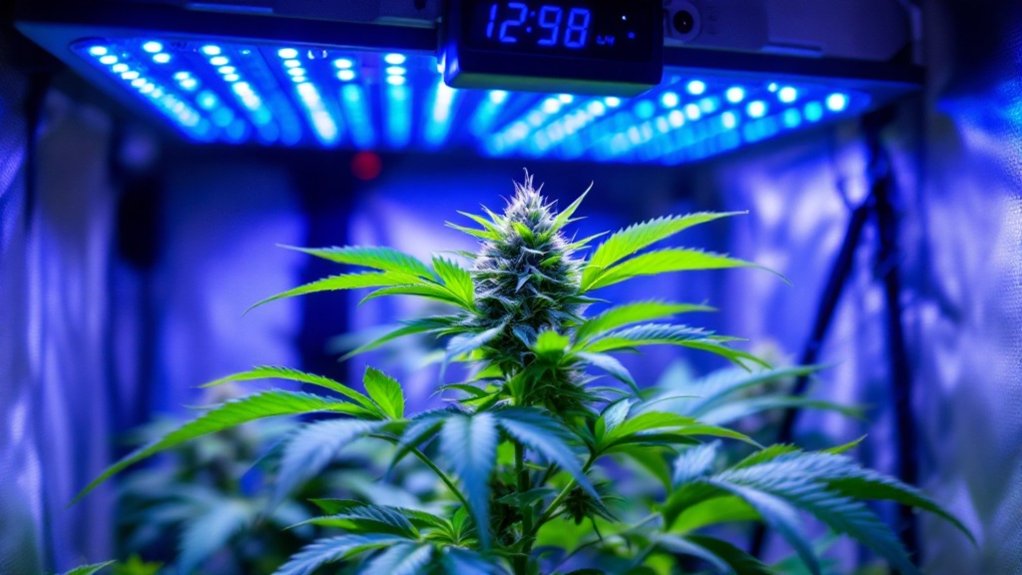The cannabis industry’s rapid expansion has created an unprecedented demand for compliance officers, professionals who navigate the complex web of state and federal regulations governing this emerging market. These specialized roles require individuals who can balance legal expertise with operational knowledge, ensuring businesses maintain their licenses while avoiding costly violations. As regulatory frameworks continue to evolve across different jurisdictions, companies face mounting pressure to identify candidates who possess both technical compliance skills and the adaptability to manage an ever-changing landscape of requirements that could determine their survival.
Core Responsibilities and Daily Operations

Cannabis compliance officers serve as the critical bridge between regulatory requirements and business operations, guaranteeing that cannabis companies maintain adherence to complex and frequently changing legal frameworks.
These professionals monitor state and local cannabis laws daily, interpreting new regulations and updating management on legal mandates that affect business procedures. Their responsibilities include maintaining organizational licenses, tracking renewal dates, and overseeing compliance documentation for regulatory audits.
Daily operations involve implementing internal controls for inventory management, packaging protocols, and seed-to-sale tracking systems using state-approved tools. Officers also leverage cannabis point-of-sale software to ensure accurate label compliance and streamline regulatory requirements. They must prepare for suspicious activity reports that financial institutions serving cannabis businesses are required to file every 90 days due to federal banking restrictions.
Officers conduct routine risk assessments, maintain surveillance systems, and guarantee controlled facility access to prevent unauthorized activities. They schedule regular staff training sessions on compliance protocols, investigate violations, and prepare detailed reports for both management and regulatory agencies, maintaining inspection readiness through thorough documentation. These professionals also foster ethical practices within the organization by developing comprehensive internal policies that align with regulatory standards.
Essential Skills and Educational Requirements
Success in this specialized regulatory role demands a thorough blend of legal expertise, technical proficiency, and interpersonal capabilities that align with the unique challenges of operating within a heavily regulated industry.
Most employers require candidates to possess a bachelor’s degree in business, law, public health, or related disciplines, while advanced degrees provide competitive advantages. State-required licensing or certification for compliance officers remains mandatory in many jurisdictions. Professional designations such as Certified Compliance Officer can significantly enhance career prospects and demonstrate specialized competence in cannabis regulatory oversight.
Essential technical skills include proficiency with compliance tracking software like METRC, data management systems, and POS platforms. Candidates must demonstrate exceptional attention to detail for documentation review and discrepancy identification. Understanding of suspicious activity reports is crucial as financial institutions must file these when servicing marijuana-related businesses.
Strong analytical abilities support internal audits, inspections, and regulatory adherence assessments. Officers must also possess the leadership experience necessary to effectively manage teams of compliance analysts and specialists.
Communication skills prove equally critical, as officers must explain complex regulations to diverse employee groups and conduct extensive training sessions effectively.
Compliance Program Development and Management

Developing a thorough compliance program represents the cornerstone responsibility for cannabis compliance officers, requiring systematic construction of policies, procedures, and monitoring systems that guarantee adherence to complex regulatory frameworks.
Officers establish written policies that codify expectations across all operational areas, creating standard operating procedures with version control systems for core business processes. They implement centralized documentation systems that facilitate easy retrieval during audits and inspections, while maintaining scheduled compliance calendars for license renewals and policy reviews.
Effective program management includes routine risk assessments tailored to changing regulations, identifying priority areas like cultivation, sales, and finance. Officers conduct periodic internal reviews, develop action plans with clear timelines, and document all findings for transparency. They must also implement preventative control plans to identify and mitigate potential hazards throughout all operational processes.
They establish control activities over inventory, quality assurance, and security procedures while utilizing compliance management software to track and report activities. Officers designate departmental leads to oversee compliance within specific operational areas, ensuring each department maintains accountability for their applicable regulations and internal policies. Officers must stay vigilant about Section 280E compliance to navigate the unique tax obligations specific to cannabis businesses.
Performance Metrics and Success Indicators
Measuring the effectiveness of compliance programs requires establishing concrete performance metrics that demonstrate adherence to regulatory requirements and operational excellence.
Concrete performance metrics serve as the foundation for demonstrating true regulatory adherence and achieving measurable operational excellence.
Cannabis compliance officers must track regulatory compliance adherence through audit scores, violation rates, and training completion statistics. Risk management indicators include incident frequency, audit finding resolution times, and materialized compliance risks.
Operational efficiency metrics encompass documentation processing times, task completion rates, and system integration with automation equipment to ensure regulatory monitoring of cultivation processes.
Data quality measurements focus on internal test results matching third-party laboratory findings, standardized protocol consistency, and batch clearance rates.
Stakeholder engagement indicators track feedback loops with employees and regulators, policy updates based on audit recommendations, and sustained improvement across key performance indicators. Cultural assessments through employee surveys help evaluate compliance perception within the organization and identify barriers to effective program implementation.
These thorough metrics enable organizations to identify compliance gaps, optimize operational processes, and demonstrate regulatory commitment to stakeholders and oversight bodies. Comprehensive empirical data collection across these performance areas ensures evidence-based assessment of compliance program effectiveness and supports informed decision-making for regulatory adherence strategies.
Recruitment Best Practices and Candidate Evaluation

Finding qualified cannabis compliance officers requires strategic recruitment approaches that address the unique challenges of a highly regulated industry. Organizations should utilize cannabis-specific job boards like Vangst and FlowerHire to access experienced candidates, while leveraging employee referrals and local professional networks for targeted outreach.
Community engagement through workshops and job fairs builds reputation and attracts mission-aligned applicants.
Effective candidate evaluation involves thorough background checks, certification verification, and role-specific interviews that assess both technical expertise and cultural fit. Multiple interview rounds with cross-functional stakeholders reduce bias and improve selection quality.
Behavioral questions gauge adaptability and integrity, while practical assessments evaluate real-world problem-solving abilities. Companies should prioritize candidates with experience in regulated environments, ensuring all hires meet legal requirements before onboarding. Offering competitive salaries above minimum wage helps reduce turnover and attract higher-quality compliance professionals. Given the cannabis industry’s rapid expansion, recruiters must stay current with evolving compliance requirements across different markets.








